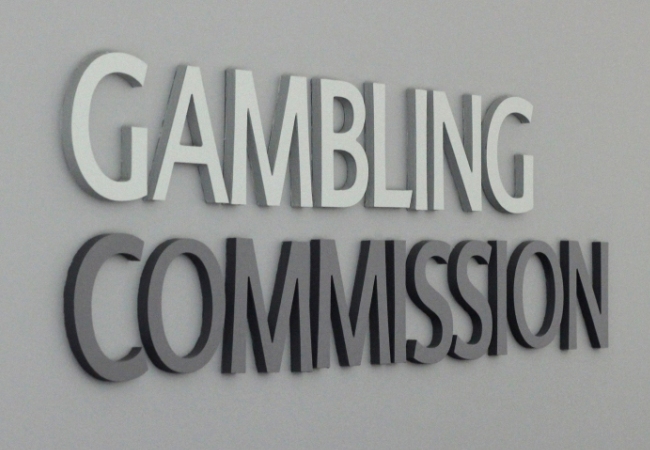The All Party Parliamentary Group for gambling (APPG) has called for an overhaul of the UK gambling sector in its latest report.
The All Party Parliamentary Group for gambling (APPG) has published its final report on the harms of online gambling and has concluded that a range of new measures and controls should be introduced.
The report is the product of a year-long investigation into Britain’s online gambling market, which considered evidence gathered from lawmakers, gambling operators, the Gambling Commission and people who have suffered from gambling-related harms.
What the report recommends
The APPG’s report sets out more than 30 recommendations for regulatory change, with the most notable proposal being a blanket ban on gambling advertising. The group claims that because gambling can cause harm to individuals, and because advertising is designed to encourage people to gamble, a total ban is justified.
However, the group’s report suggested that strict controls where gambling advertising is restricted and not completely banned could be adopted. The report also proposes that the gambling advertising ban should go beyond typical channels and apply to video games such as the FIFA football series, where gambling sponsors appear on team shirts in the game.
The report also reviewed the use of bonuses and incentives used by operators to find out whether these contributed to harmful gambling behaviour. The APPG suggested that bonuses and incentives should also be prohibited.
Although the APPG welcomed the industry effort to manage VIP schemes which were coordinated by the Gambling Commission, it said that loyalty programmes like these are “highlight problematic” and must be banned.
In its report, the APPG said: “These schemes drive profit for the industry and … the Commission itself has seen the dependence of the gambling industry on VIP customers of those who are disproportionately likely to be addicts.
“One firm is said to have taken 83% of all deposits from just 2% of its customers through VIP schemes.
“The award of VIP status has been cited as a factor in seven out of ten regulatory penalties issued to companies by the Commission for failures to prevent problem gambling.”
Restrictions on products
The APPG’s report went on to discuss gambling products it considers to be very popular among problem gamblers such as in-play sports betting, online roulette and online slot games. The group argued that the current processes appear to favour the gambling industry and believe that an independent review of how online gambling products are regulated, tested and classified in terms of addictiveness is needed.
On top of this, the report called for the speed to be reduced on random number generated digital slot games and roulette. In addition to this, the group called for free spins, turbo spins and reel stop play to be scrapped.
The report also proposes that consumers should be given more accurate information on the chances of winning and the element of random chance and skill involved in the games. The group suggests that a £2 stake limit for online slots should also be implemented.
The APPG believes that in-play sports betting should also be restricted to sports venues, or via telephone. The group said this will bring Great Britain in line with Australia’s market. However, in-play sports betting is completely prohibited in Australia. In 2017, the country closed a loophole that allowed sports betting operators to take in-play bets via telephone.
According to the report, it was “clear” that stake limits are needed to reduce gambling harm. The report went on to say that the risks that come with remote gambling are not being managed effectively or comprehensively, and therefore an urgent review of stakes and prize limits was needed.
Customer checks
The report said that the review of stakes should be followed up on a regular basis with a triennial review. This will involve every customer completing affordability checks that would allow deposit limits to be set for each individuals circumstance.
This would be carried out through the implementation of a “single sign-on” (SSO) mechanism. This would be a third-party software platform that creates a profile for a user, which is then used to sign on to every betting site.
The group said that there was “no justification” not to have regulatory parity across channels and argued that online gambling should be subject to the same controls and limits as the land-based industry.
In the report, the group said: “We would be interested to know the Gambling Commission’s view as to why this is not the case.”
Criticism of the Gambling Commission
Once again, the APPG has condemned the Gambling Commission as not being fit for purpose.
The APPG said: “It is our view that the Gambling Commission is not fit for purpose and we recommend an urgent review of the Gambling Commission and its capacity to effectively regulate the burgeoning online gambling industry.
“The Government must commit further and more flexible funding for the Gambling Commission to enable it to cope with the growth in its responsibilities and there must be rigorous oversight as to how this is money is spent.”
However, the group praised the Commission’s implementation of its ban on using credit cards to fund gambling but questioned why it took so long for this to be implemented. The group said that this must be built on by banning the use of other forms of credit such as loans and bank overdrafts.
The report also suggests banning reverse withdrawals, where a player can cancel a request to withdraw funds in order to gamble with.
Is the APPG prohibitionist?
In the past, bodies such as the Betting and Gaming Council (BGC) have indirectly labelled the APPG as “prohibitionist.” The APPG took exception to this and said that this was done in order to “debase what is an important discussion to protect vulnerable people and children and prevent online gambling harm.”
The group’s chair and MP for Swansea East Carolyn Harris has described the gambling industry as a multi-million-pound industry that has “destroyed people’s lives.”
Harris claims that: “They (the industry) resist change at every turn and claim to be reforming themselves but put forward limited changes. Their primary motive is profit. During the Covid pandemic they said they would end TV and radio advertising but just ended up replacing ads with ads – that none of us want to see.”
“They have shown time and again that they will not effectively self-regulate. We cannot ignore this any longer. Urgent change is needed to stop this industry riding roughshod over people’s lives.”
Although the APPG has no legislative power, the group has been influential when it comes to gambling reform and was a key proponent on the decision to set a maximum stake of £2 on fixed-odds betting terminals (FOBTs) in 2018.







